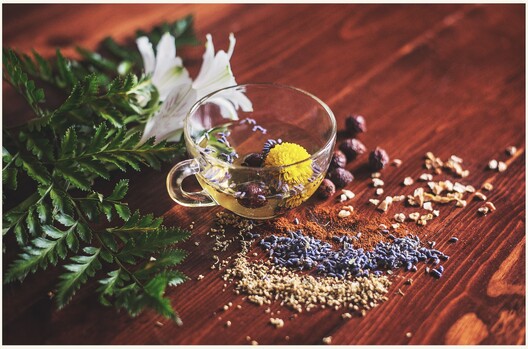“I’ve got a headache” so the saying goes. But the reality is, this common excuse may be masking the truth of zero sexual desire for many women of all ages.
Normal female hormone production requires a balanced diet, adequate rest, a healthy environment and moderate exercise. In these modern times it is difficult to get all of these right, leading to exhaustion, macro and micronutrient deficiencies and subsequent flat-lining libido.
Hypoactive sexual desire is the most prevalent female sexual dysfunction, and often an unspoken issue. Fortunately, nature can nurture with a little help from the plant kingdom in combination with dietary changes and some easy lifestyle tips.
Realistically, it has been very confusing for the average person over the last 20 years with various dietary trends written about in books, blogs, latest “scientific” research and “what he/she said” diet tips. Fat is bad?! Carbs are bad?! Meat is bad?! Now even eating is bad?!
One thing we know for sure is hormones are steroidal in their makeup and they do need that naughty word “cholesterol” to ensure they are produced and maintained. It is after all the precursor to oestrogen, testosterone and other hormones.
So number one tip: Eat good quality fats, some saturated from butter, animal fat and cocoa butter, some mono saturated found in nuts, avocado, coconut and olive oil and include polyunsaturated fats found in fish oil, flax, borage and evening primrose oil.
A good general rule to go by is one and a half palms of good quality protein, 1 palm of low glycemic carbohydrate and a finger of fat in each meal.
Let’s now move to the “so-called” aphrodisiac foods and are they for real? Oysters? Obviously yes because they are high in zinc. Chocolate? Well according to a study done on a group of Italian women no correlation was found between sexual desire and chocolate consumption1, but to be honest it is still a welcomed Valentine’s or anytime gift!
While we are on the subject of nutrients such as zinc, there are a few more worth mentioning ..B vitamins, magnesium (oh that is in chocolate too), vitamin D, selenium and iodine. Food wise include organic leafy greens, oily fish, brazil nuts, figs, avocados, brassica vegetables, quinoa and oats. Given 35% of the population are deficient in magnesium, put priority on replenishing that important mineral.
If you are struggling to eat a balanced diet, and let’s face it there are times we all get busy and don’t eat that well, then a good multi nutrient supplement may be required. Make sure the one you choose has good absorbable forms of the minerals in particular and in adequate quantities in each dose.
Mother nature can provide a boost in the form of plant medicine otherwise known as phytotherapy. A study involving 89 eligible women suffering from decreased sexual desire were randomly assigned to groups. One group received a 500 mg aqueous extract of Lemon Balm (Melissa officinalis) or placebo 2 times a day for 4 weeks. Changes in scores of desire, arousal, lubrication, orgasm, satisfaction and pain were evaluated at the end of 4 weeks of treatment and these changes in the lemon balm group was significantly more than that of the placebo group.2
Ashwagandha (Withania somnifera) has become very popular to aid sleep, de-stress and boost energy, and it also plays a part in helping libido in both men and women. The key constituents found in Ashwagandha are called withanoloides, and these little beauties can balance a stressed nervous system which is important for a healthy sex life.
Other plants worth a mention are Damiana (Turnera diffusa), Ginkgo (Ginkgo biloba), Maca (Lepidium mayeniii), Tribulus (Tribulus terrestris) and Passionflower (Passiflora incarnata).
If vaginal dryness is an issue, which is common for peri and menopausal women, consider the use of infused Fennel (Foeniculum vulgare) seed oil and Sea buckthorn (Hippophae rhamnoides) oil pessaries. In an Iranian study, the use of Fennel seed infused oil, , was able to help alleviate some of the main symptoms of vaginal atrophy (itching, burning, dryness and dyspareunia) in post menopausal women, as well as improving the pH and cell health of the vagina. Water based lubricants draw moisture out of the tissues, changing the pH and bacterial microbiota. Fortunately there is a wonderful New Zealand made natural oil based product called Nu Balm, which is much kinder on tissues of the vulva and vagina and most importantly is effective. With a simple combination of olive oil, beeswax and the New Zealand native Kanuka oil.
After taking diet and natural medicine into consideration, make sure the environment in which you reside is healthy too. Get fresh air, sunlight, limit time around wifi and devices and avoid using non-natural cleaning products, cosmetics, perfumes, and toiletries. The chemicals found in these can influence your endocrine system and play havoc on hormones. Plastics do the same thing, so rid your pantry and fridge of as much plastic as possible.
So there you go, your natural panadol, whether it is some adjustments to your diet, introduction of gentle exercise and perhaps the right phytotherapy mix to feel a whole lot better day or night!
If you require advice on the right herbs and supplements tailored to you, make an appointment today!
1. Salonia A, Fabbri F, Zanni G, Scavini M, Fantini GV, Briganti A, Naspro R, Parazzini F, Gori E, Rigatti P, Montorsi F. Chocolate and women's sexual health: An intriguing correlation. J Sex Med. 2006 May;3(3):476-82. doi: 10.1111/j.1743-6109.2006.00236.x. PMID: 16681473.
2. Darvish-Mofrad-Kashani, Zahra & Emaratkar, Elham & Hashem-Dabaghian, Fataneh & Emadi, Fatemeh & Raisi, Firoozeh & Aliasl, Jale & Kamalinejad, Mohammad & Hasheminejad, Seyed & Eftekhar, Tahere & Zafarghandi, Nafise. (2018). Effect of Melissa officinalis (Lemon balm) on Sexual Dysfunction in Women: A Double- blind, Randomized, Placebo-controlled Study. Iranian Journal of Pharmaceutical Research : IJPR. 17. 89-100.
